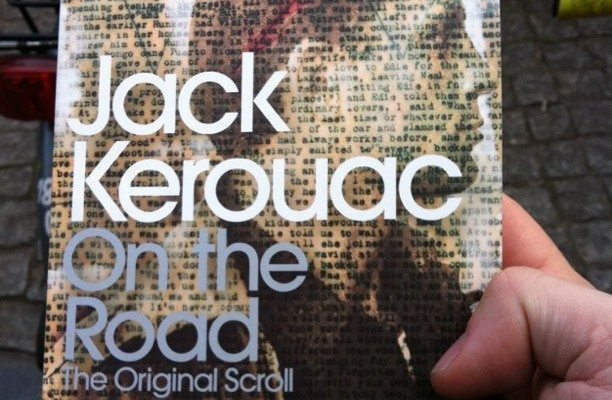 Image courtesy of [Alper Cugun via Flickr]
Image courtesy of [Alper Cugun via Flickr]
Entertainment
Letter That Inspired Kerouac’s On the Road is Subject of Lawsuit
On January 23, 2015, a quiet title suit was filed against the estates and heirs of Jack Kerouac and Neal Cassady over the famous letter that allegedly spawned the creation of Kerouac’s landmark novel, On the Road. On the Road, published in 1957, tells the tale of Sal Paradise, the novel’s narrator, as he crisscrosses the nation on the road in search of “it,” alongside his pal Dean Moriarty. Sal and Dean are based on Kerouac and Cassady.
The letter, which is written from Cassady to Kerouac, holds a high place among Beat Generation lore. The letter is known among Kerouac fans as the Joan Anderson letter, which is an 18-page, 16,000-word, drug-fueled, stream-of-consciousness letter that made Kerouac discard a draft of On the Road for Cassady’s writing style. Kerouac called the letter the “greatest piece of writing I ever saw,” according to Time. The letter also contained a nineteenth page that featured stories of Cassady’s various sexual conquests. The letter was supposed to be auctioned off last December, but the Cassady and Kerouac estates claimed that Spinosa had no right to do so. The auction was later shelved.
Hence the quiet title lawsuit. Quiet title is a lawsuit that establishes a party’s title to real property or personal property and “quiets” any challenges from anyone else regarding title to a piece of property.
According to Courthouse News Service, Jean Spinosa claims that Kerouac gave the letter to famed poet Allen Ginsberg to shop around to various publishers and effectively act as Cassady’s agent. Ginsberg apparently gave the letter to someone at Ace Books and to Richard Emerson at Golden Goose Press, neither of whom ever read it.
Emerson later closed Golden Goose Press and stored its records in boxes at an address where Spinosa’s father, Jack, ran a record company. Emerson gave the boxes to Spinosa’s father, who took them home to his house in Oakland, California, which is where they stayed until Spinosa’s father died in 2011.
Spinosa says that she found the letter in 2012 when she went through her father’s boxes. Michael McQuate was with Spinosa when she found the letter, and he argues that Spinosa agreed to pay him half the proceeds from selling it. Spinosa, however, denies an oral or written agreement between herself and McQuate and has named him in her suit, as well.
In addition to Kerouac and Cassady’s estates and heirs and McQuate, Spinosa is suing the company Profiles in History because she contracted with it to auction off the letter, but that never happened because of the estates’ protests.
The letter is a monumental artifact for mid-twentieth century American literature, signifying the start of the Beat Generation, which helped create a counterculture in the 1950s, and in turn inspire the 1960s Hippie movement. On the Road continues to resonate with young men and women who wish to take to the open road to find themselves, discover a revelation, or find something to hold onto.
If you wish to see the text of the Joan Anderson letter, click here.








Comments